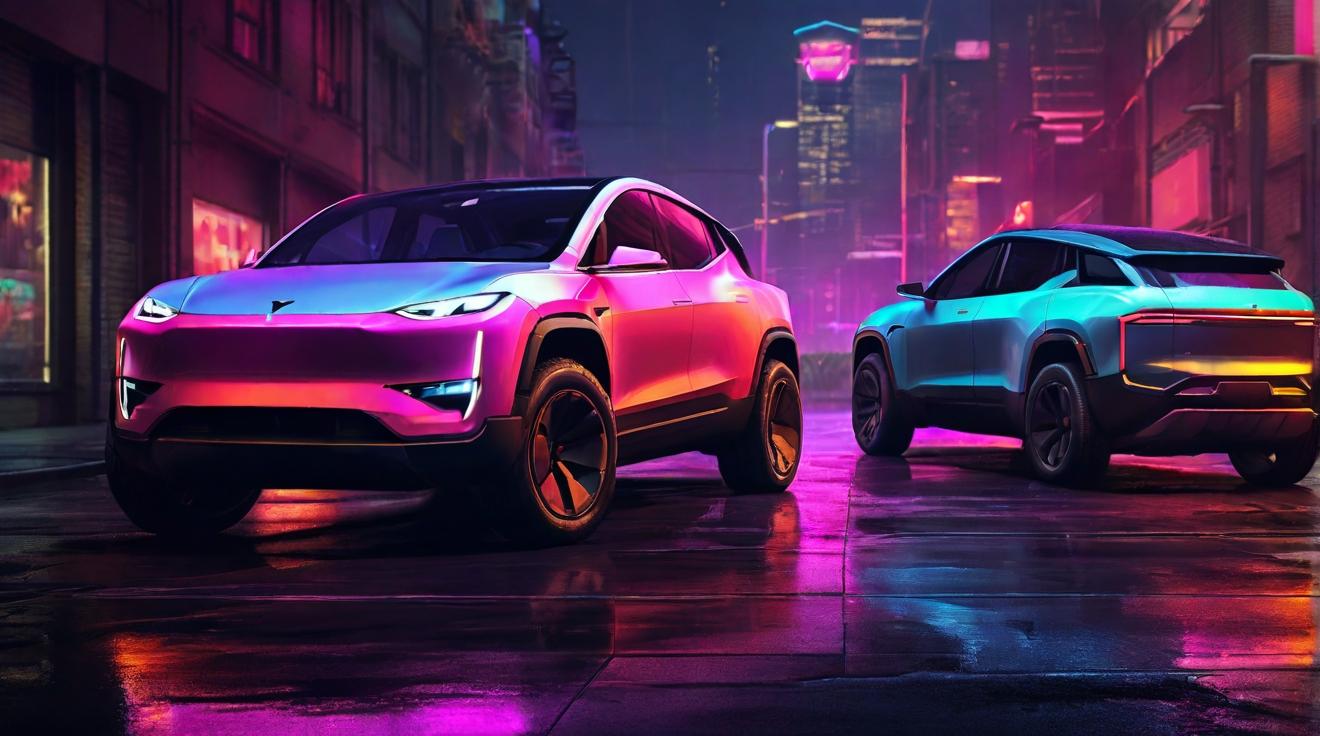Tesla Cybertruck vs. Rivian R1T: Electric Pickup Trucks SWOT Analysis
In the rapidly evolving electric vehicle (EV) market, two models have sparked intense interest and speculation: the Tesla Cybertruck and the Rivian R1T. Each brings its own unique set of strengths, weaknesses, opportunities, and threats (SWOT) to the table. As the global automotive industry shifts towards sustainability, these electric pickup trucks are at the forefront of innovation. Here's a comprehensive SWOT analysis comparing the Tesla Cybertruck with the Rivian R1T.
Tesla Cybertruck SWOT Analysis
Strengths:
- Brand Recognition: Tesla's brand is synonymous with electric vehicles, giving the Cybertruck an edge in market recognition.
- Innovative Design: With its unconventional, futuristic appearance, the Cybertruck stands out in the automotive landscape.
- Advanced Technology: Tesla's proprietary technology, including Autopilot and potential access to the Full Self-Driving (FSD) suite, sets the Cybertruck apart.
Weaknesses:
- Polarizing Design: The Cybertruck's design might deter traditional pickup truck buyers.
- Production Delays: Tesla has faced significant delays in the production of the Cybertruck, potentially affecting consumer confidence.
Opportunities:
- Growing EV Market: The increasing demand for electric vehicles represents a significant opportunity for the Cybertruck.
- Energy Efficiency: Advancements in battery technology could enhance the Cybertruck's range and performance.
Threats:
- Competition: Rising competitors, including the Rivian R1T, pose a significant threat to the Cybertruck's market share.
- Regulatory Challenges: Changes in EV subsidies and regulations could impact Tesla's pricing and profitability.
Rivian R1T SWOT Analysis
Strengths:
- Off-Road Capability: The R1T is designed for adventure, offering impressive off-road capabilities that appeal to outdoor enthusiasts.
- Fast Charging Network: Rivian is developing a network of fast-charging stations, enhancing the R1T's appeal through convenience.
- Innovative Storage Solutions: The R1T features unique storage options, such as the Gear Tunnel, adding practicality to its design.
Weaknesses:
- Brand Recognition: As a newer player in the market, Rivian lacks the brand recognition of established companies like Tesla.
- Higher Price Point: The R1T's premium pricing may limit its accessibility to a broader market.
Opportunities:
- Partnerships and Investments: Significant investments from major companies, including Amazon, could bolster Rivian's position in the market.
- Sustainability Initiatives: Rivian's commitment to sustainability, including plans for a carbon-neutral factory, aligns with growing consumer demand for eco-friendly products.
Threats:
- Production Scalability: Rivian faces the challenge of scaling its production to meet demand without compromising quality.
- Competition: The electric vehicle market is becoming increasingly crowded, with numerous manufacturers vying for dominance.
In conclusion, both the Tesla Cybertruck and the Rivian R1T are poised to redefine the electric pickup truck market. While Tesla leverages its brand strength and technological prowess, Rivian offers robust off-road capabilities and innovative features. As the EV landscape continues to evolve, the competition between these two models will undoubtedly shape the future of electric transportation.













